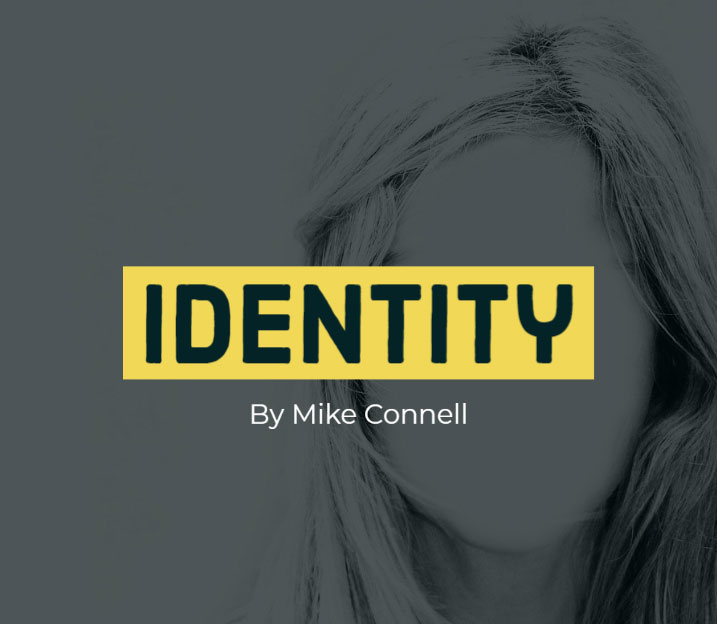
Performance (3 of 4) Mike Connell 08.06.2008 am
Thank You Lord! Thank You Lord! We love You Jesus! Hallelujah Lord. Amen. Please be seated. Have a look in your Bible, Proverbs 23:7. We've been talking about identity, identity. I want to pick that up. We're doing a series on it. I looked identity in Christ in the first session, what it would look like if you were free to be who you are. Then we looked at some ways people define identity, who I am. Identity's all about who am I, and if you don't know who you are well you're in trouble because everyone else will define it for you. So we saw different ways people identify themselves and we looked particularly at one area of victim mentality; I'm a victim. I can't do anything. So the question is then how do you see yourself, because how you see yourself and Proverbs 23:7 says as a man thinks in his heart, so he is. Or what you believe in your heart yourself to be is how you'll live your life.
What you believe about yourself will dramatically determine your life and your relationships, so the question is how do you see yourself? Do you see yourself the way God sees you, or do you define yourself somewhat differently? So we were looking at some aspects of that; what do you believe about yourself? See, how do you see yourself? How do you define yourself? You're going to live out of that. See, who are you really, and next time I'm up I want to just talk to you then about our identity in Christ, how we establish what that identity in Christ is and how we establish it strongly and firmly in our life. I need to know who I am in Christ, see? So your identity is who you are and it's made up of a lot of things. We define it different ways, so one way you look at your face; oh, there's Cecelia. She didn't say a word and I knew her face, so your face defines who you are. Your face speaks or identifies who you are. Your name identifies you. I'm Mike. That's my first name, so my face and name identify - and voice identify me.
My name is Connell so I'm from a family line. I'm connected to a family line and in that family line a lot of things look similar. Anyone seeing my brothers would realise a lot of things are similar. [Laughter] You look, you see oh, it's a family you know? You can actually see - so my identity is also partly defined - in the natural area we're looking at now - by where I come from, the family line I'm a part of. And God sees you connected into generational lines, so God sees you in terms of family and when God looks say for example at Levi, He said well he's part of the Abraham line. So whatever Abraham did, Levi was a part of that because he's part of the family line - but Levi was a great-grandchild. So when God looks at families He looks at the whole line of the family. Now that's a problem. It's good and it's bad because if you've got great parents then you are part of a family line that's great, got great qualities going through.
But if they were really bad you've got some issues, and so there's a problem there. So God designed us so that family identity would flow down from where we came from, so Adam and Eve came from God. Who are they? They're the children of God, but when they sinned something changed. God's plan was that from Adam and Eve would flow down the line of God into the earth; that Adam and Eve were made in the image of God with His character, His nature, some of His capacities. They were designed to reflect Him in the earth and so what God's design was that they would have children, and the children would also reflect what God is like. But when sin came in, see now the next line was now made in the image of Adam, not in the image of God because something had changed. Sin had come in and now there's destructive things come in family lines as well as constructive things and we have to understand that and work out what to do about that.
So we identify ourself by our gender; I'm a male, I'm a man. I'm a man, I'm a woman, you know so that's a part of identifying who you are. You identify yourself by your [racial background; 00.04.14] I'm a Kiwi - so we use a whole number of ways of identifying ourselves. We could identify ourselves by our social status; well I'm a leader, I'm a pastor, I'm a businessman. That's who I am. What if your business goes bust, who are you then? [Laughs] We can identify ourself by experiences, by the hurts and pains and difficulties or failures we've had; I'm a failure. No, you're not a failure. You've defined yourself in your identity by your experiences, but that's not who you are. Alright, we may define ourself by painful experiences; I'm a victim. I'm powerless. I can't do anything. Now you never say that but actually it's in the heart it'll flow out the life.